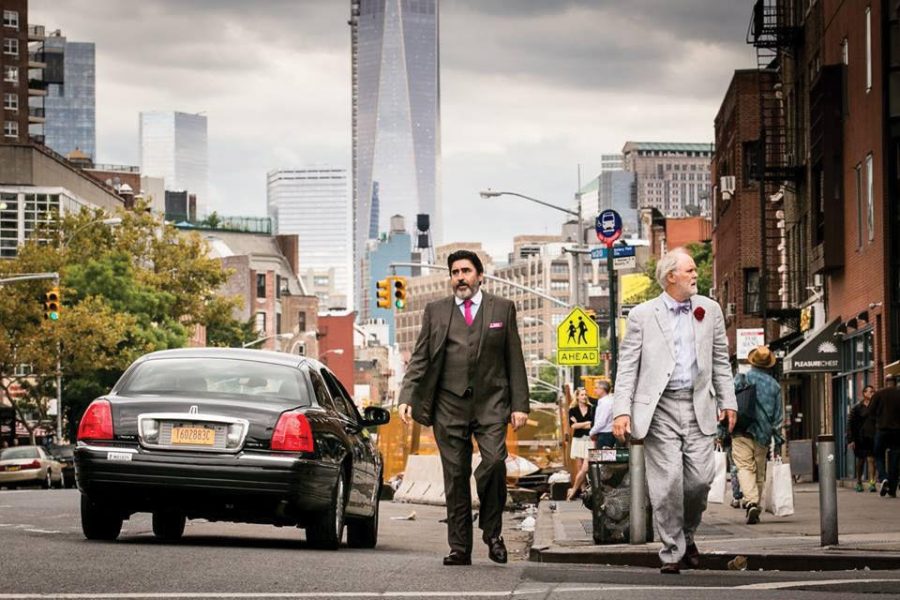‘Love Is Strange’ an honest, graceful modern romance
October 8, 2014
“Love Is Strange”
Directed by: Ira Sachs
Starring: Alfred Molina, John Lithgow, Marisa Tomei
Grade: B+
Movies that grapple with the subject of love often struggle to depict it honestly, and “Love Is Strange” knows it. Instead of unnecessary flourishes and hackneyed drama, the film is unapologetic in its approach.
Ira Sachs’ latest examination of same-sex relationships is maturely rendered by the sincerity of its script, in addition to the fearless and graceful performances by Alfred Molina and John Lithgow as a couple of 39 years.
Ben and George (Lithgow and Molina, respectively) face slightly turbulent times nearly four decades into their ever-enduring relationship. Most jubilantly, the two finally wed. Less so, George is fired from his position as a music instructor at his church for the very same marriage.
With these unexpected money troubles, they must sell their Manhattan apartment and temporarily live separately as George seeks new work, until the couple eventually finds new, affordable living. Of course, this transition takes some time and is the ultimate focus of the film’s plot, which is not, as one might expect, about how two people in a long-term relationship deal with each other. It’s just the opposite — how tragically lost people can become when separated from their life partner because of uncontrollable circumstances.
So Ben stays with his patient daughter, Kate (Marisa Tomei), her serious husband, Elliot (Darren Burrows), and her angsty tween son, Joey (Charlie Tahan). Crowded family living situations can be silently uncomfortable and riddled with petty drama, and “Love Is Strange” portrays them in their entire unspoken, seat-squirming madness.
Meanwhile, George stays with friends in the same apartment building — another gay couple, two oft-partying policemen Ted and Roberto (Cheyenne Jackson and Manny Perez, respectively). This situation, which is given substantially less screen time than that of Lithgow’s character, shows George’s loneliness as he is isolated in a household full of exuberant 30-somethings.
In a heartbreaking scene, George comes to Ben on a rainy night just to hug him tightly in the doorway, as he confesses how much he’s missed him. In a film with little narrative direction, these small and sparse moments hold an unnatural weight and must be cherished.
The film’s elegantly simple score — consisting of only classical piano — extracts tender emotion like any good movie soundtrack should. While George narrates a letter to his students concerning his departure, a young girl plays Chopin during one of George’s private lessons — the sequence is breathtakingly edited.
But “Love Is Strange” can sometimes be as cloying as its lazy title, such as the film’s closing moments, which work a little too hard to get you choked up. And though the film is unrestricted by realism and free to breathe because of its lifelike script and relaxed pacing, certain subplots unravel into triviality and the most unessential elements slip from memory.
It’s all really on Lithgow and Molina’s shoulders, and though the two are onscreen together for maybe all of 20 minutes, they make the most of it. The film’s best scene is simply them joking around in a bar, enjoying each other’s company even after a lifetime together. Their magnificently subtle chemistry is something to savor.



